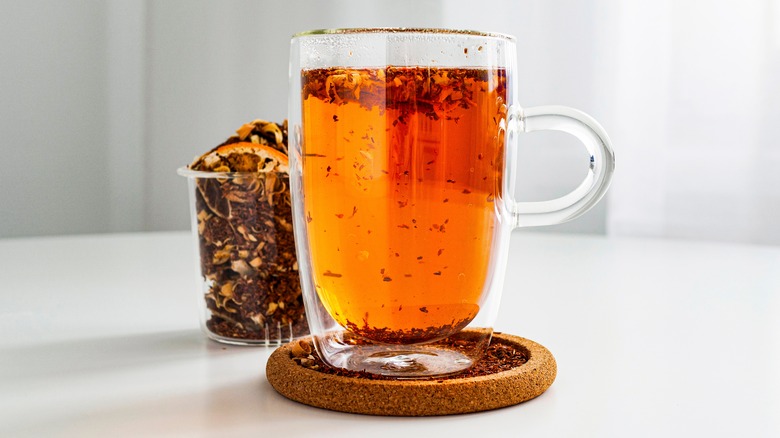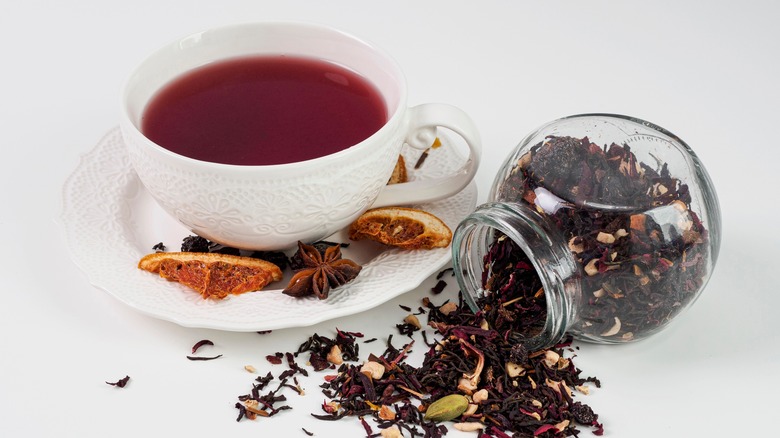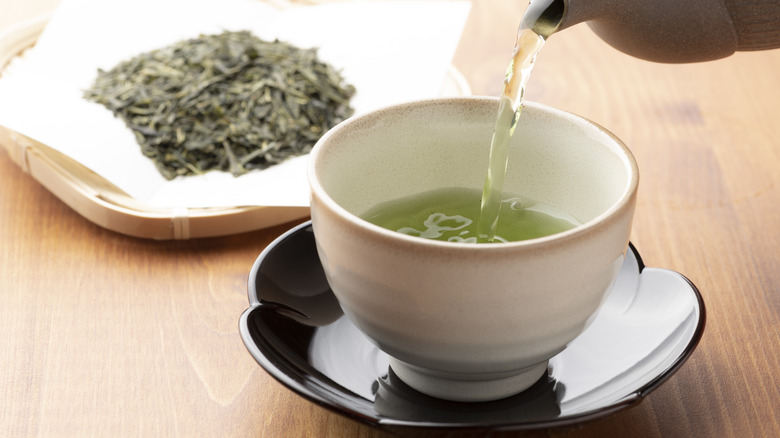Tea Bags Vs Tea Leaves: Which Lasts Longer?
Tea is one of the most popular beverages in the world. The drink is so popular, in fact, that the only beverage consumed more around the world is water, according to consumer data site Statista.
According to the University of Cambridge, legend has it that the drink got its start in 2737 BC when some leaves from a nearby tree blew into a cup of hot water being consumed by Chinese emperor Shennong. Shennong sampled the resulting leaves and hot water and enjoyed its flavor.
Today we still consume tea like Shennong did thousands of years ago, by steeping tea in hot water. Whether you like it iced, with milk and sugar, or just straight steeped with hot water, all tea starts from the same place: leaves. However, sometimes those leaves come in the form of a tea bag and rarely are we able to capture them as fresh as he did, straight from the tree.
All that begs the question: Which lasts longer? Whole tea leaves or tea bags that have been processed specifically for drinking?
Tea leaves last longer
Whether just loose dried leaves or tea bags, all tea will eventually start to lose its flavor. Diane McKay, assistant professor at the Friedman School studying antioxidant foods, wrote for Tufts that if you're looking for a tea that's going to last a long time, look for more fermented and intact leaves.
However, it's simply not practical to shove a bunch of full-leaf tea into a tea bag. This means that instead, the bags you purchase at your local store include smaller particles of tea, called dust and fannings, rather than whole leaves (although you can find a few on the market). Those smaller pieces are helpful in getting the tea in the bag but can have an impact when it comes to freshness and flavor.
The fannings and dust that are found in tea bags are more influenced by oxidation, simply because a larger amount of their surface area is exposed to oxygen and light than their whole-leaf counterparts. That can ultimately diminish the flavor of the leaves as well as its potential medicinal properties.
How long do tea leaves last?
The good news is your tea isn't likely to actually go bad. Artful Tea notes that while your old tea might not be as flavorful as it once was, it's not likely to "expire" like other foods to the point it's unsafe to consume. The worst that's likely to happen is you'll end up with a weaker flavor or perhaps a stale taste.
You can expect tea bags to last three to four months in its original bag, but up to a year if stored away from moisture, heat, and light. Properly stored loose leaf tea can last up to two years. Using an opaque container, such as a tea tin, that's tightly sealed can also help. If your tea starts to taste stale or is a different color than when you bought it, it might be time to replace it.
Loose-leaf might last a little longer, but that also doesn't mean it necessarily tastes better, provided you're drinking it fresh. Not only are tea bags easier to use since they're an easy-to-carry all-in-one steeping device, but they also infuse your water a lot easier than their whole-leaf counterparts thanks to that exposed surface area, resulting in a stronger cup of tea.
Bottom line: If you want tea that's going to last a long time, loose leaf tea is a good choice. The best choice, however, is to make yourself a cup of your favorite tea no matter what form it's in and enjoy it.


